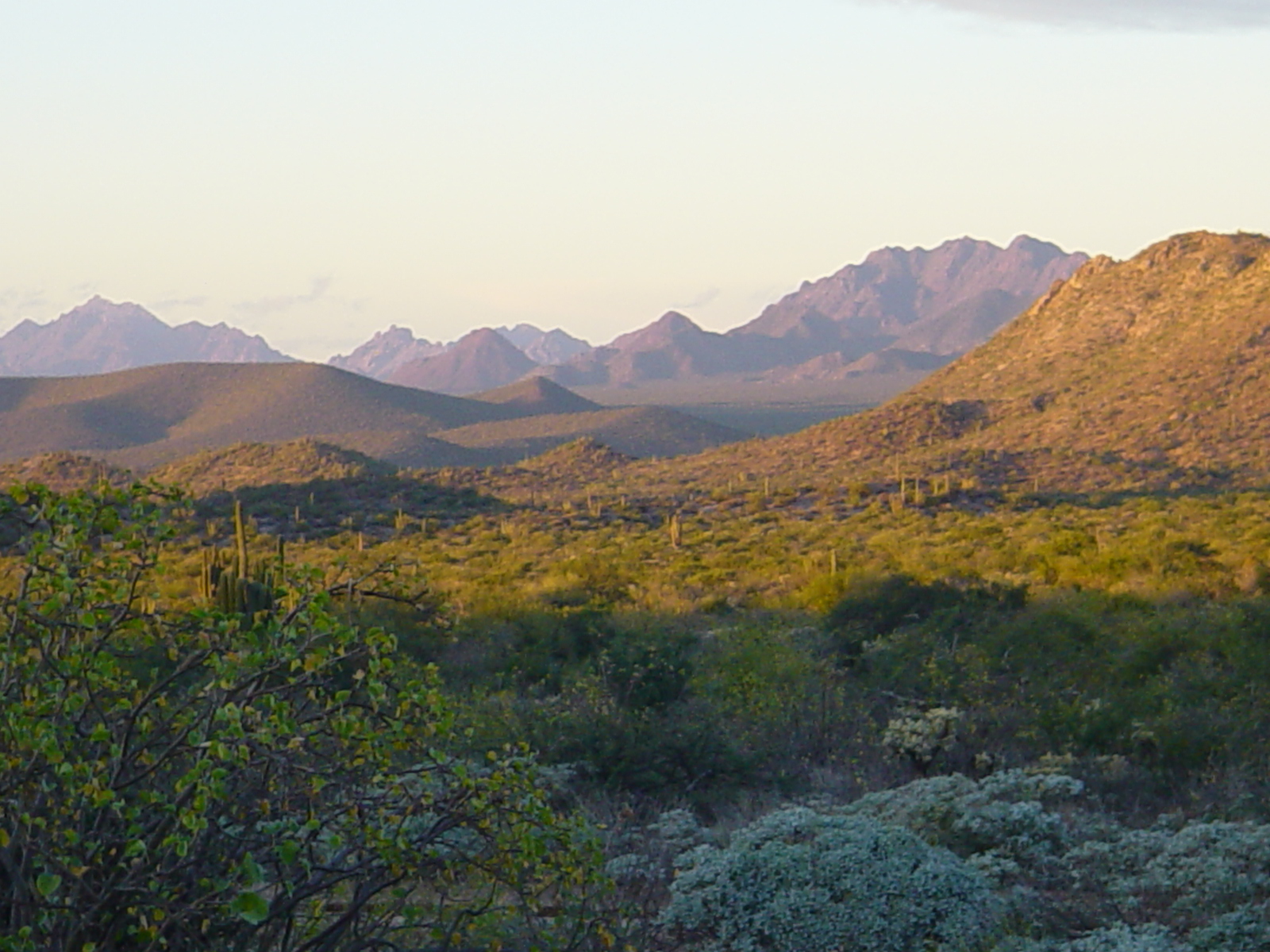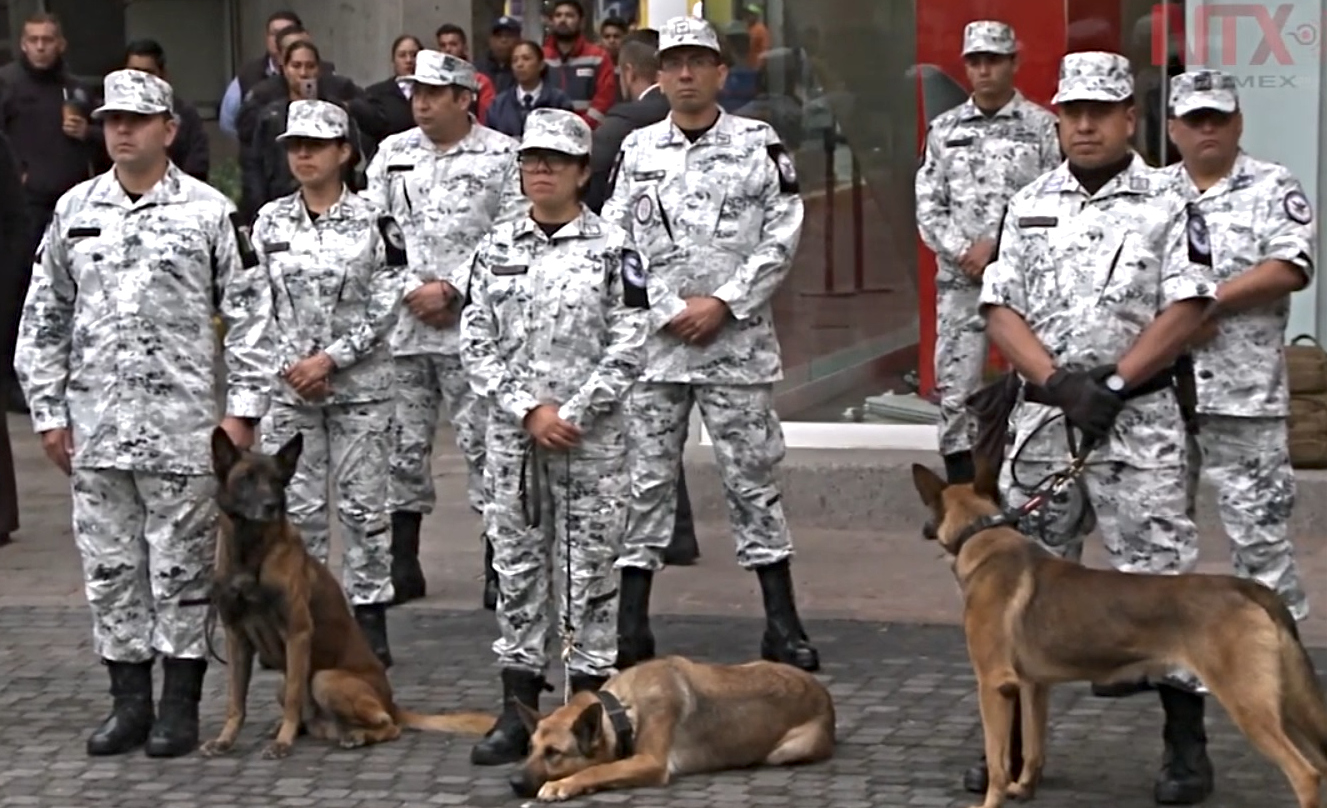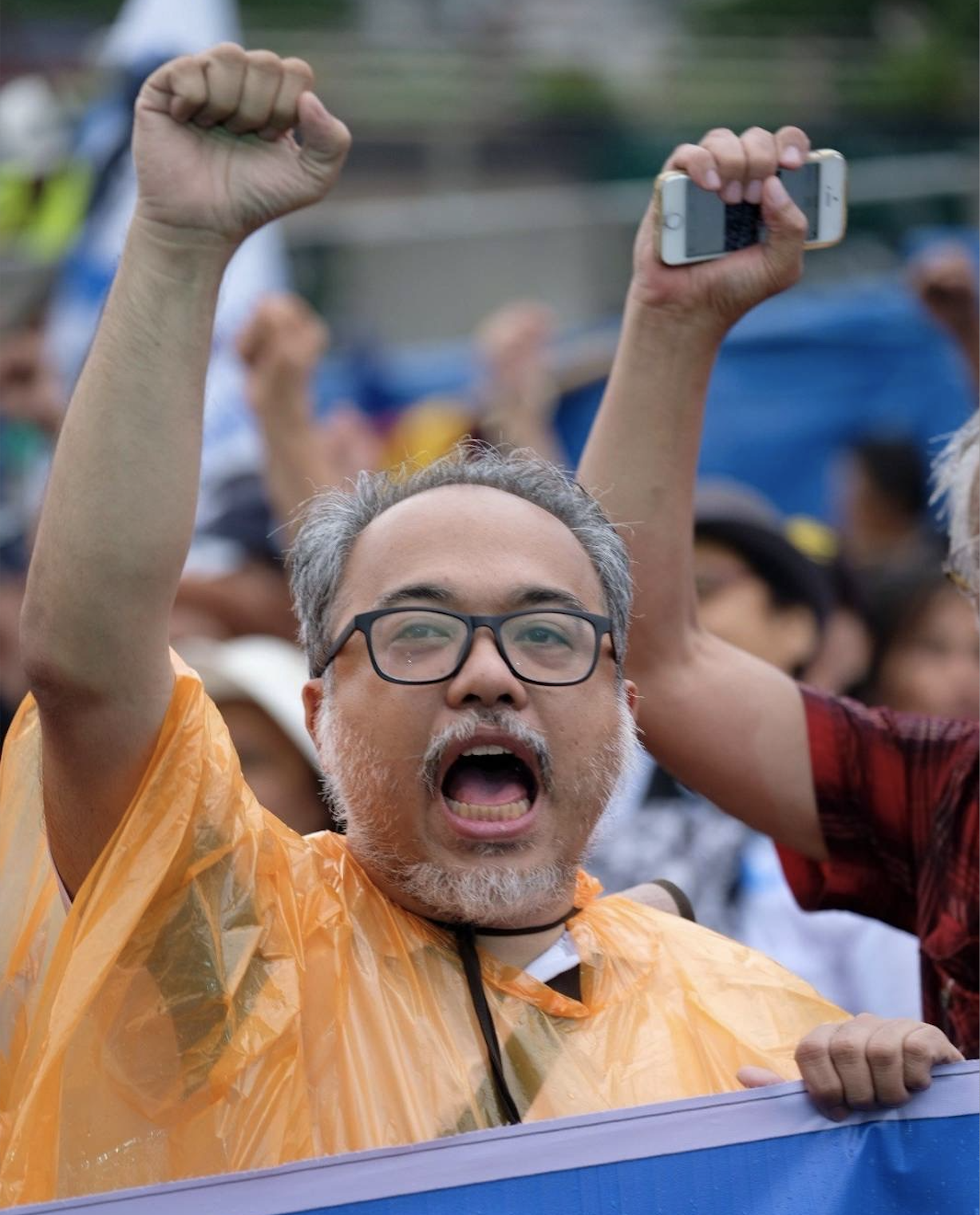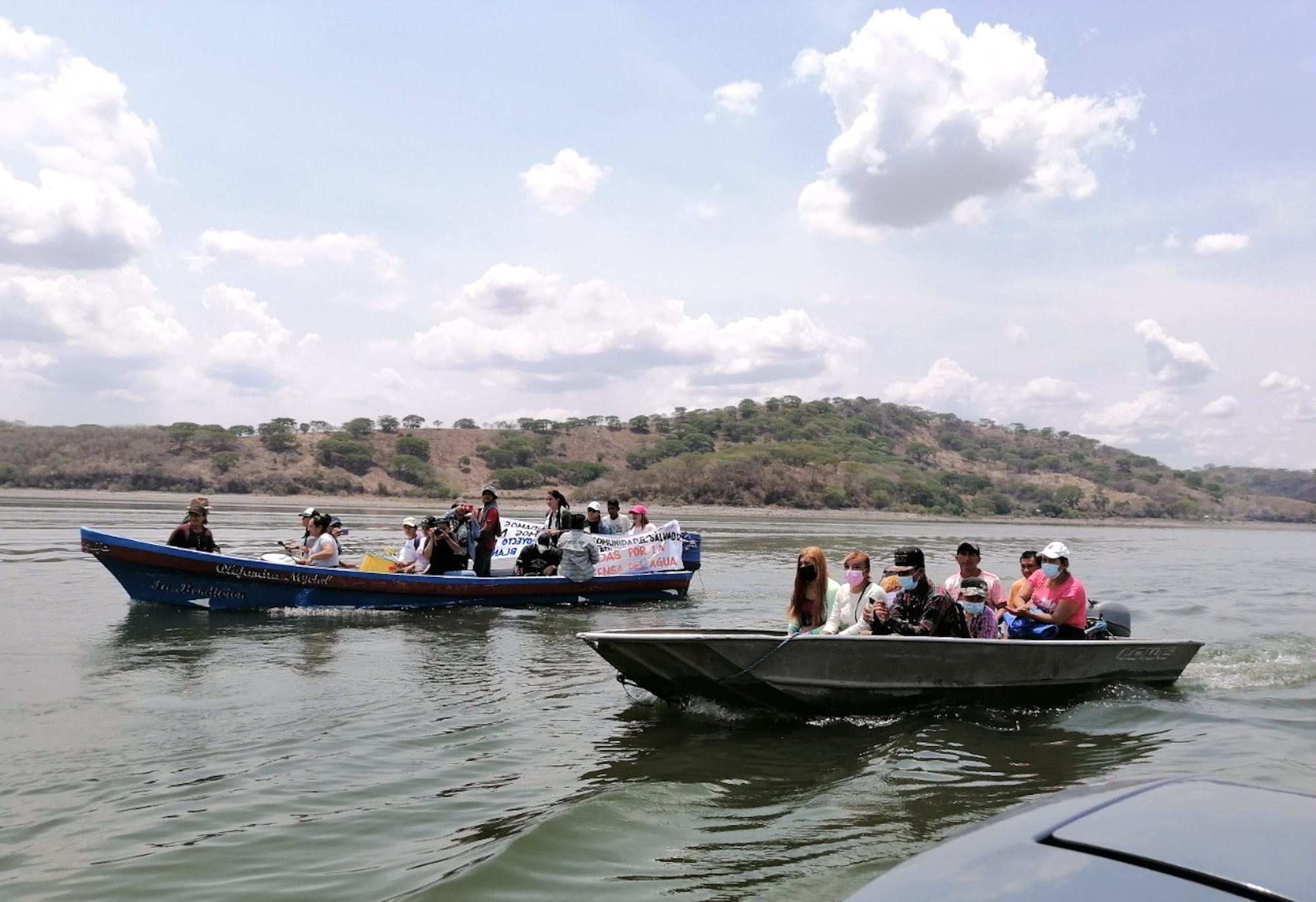The global drug war provides a golden opportunity for land-grabs that trample on human rights and sensitive ecosystems. Corporations, formally or less formally given title to land—sometimes under the pretext of “cleaning” it of illicit activities—move in. They extract natural resources such as gold, oil or lumber for maximum profit; or replace existing, diverse vegetation with monocrops foreign to the area—sugarcane, say—or cattle.
In many places around the world, local people—whose livelihoods and cultures are inseparable from the lands on which they have lived for generations—are organizing against harms like poisoning of soil and water, birth defects, and razing of rare and endangered species. Those who do frequently face violence that is often perpetrated by the illicit organizations that drug prohibition fosters—which may be paid to provide “security” to controversial projects, and which may benefit from corrupt relations with officials and law enforcement.
The violence surged after the mining began.
Community members of the ejido (communal land) of Carrizalillo, in Guerrero, Mexico, have for years opposed Los Filos and other open-pit mines owned by Canadian mining company Equinox Gold, as described in Part 1 of this series. In 2022, they formally rescinded the agreement that had permitted mining on their land. Throughout their campaign, they have been subjected to violence, extortion, kidnapping, forced displacement and dozens of murders attributed to drug-trafficking organizations fighting for control of the area. The violence surged after the mining began—much like it has in nearby Nuevo Balsas, another Guerrero town, where Canadian company Torex found gold in 2012.
Further north along the Pacific Coast, in the biodiverse desert region of Sonora, Fresnillo PLC—the world’s largest silver mining company, owned by Mexico’s fourth wealthiest man, Alberto Baillères—was likewise forced to vacate communally owned lands. A 2014 decision by an agrarian magistrate found in favor of claims initiated by five members of the El Bajío ejido, a community that includes subsistence farmers and the Tohono people who are the land’s original inhabitants.
But the impact of Penmont, the gold mine Fresnillo operated in the Sonora desert, is still being felt, ejido member Jesús Javier Thomas told Filter. Locals experience high rates of miscarriages, birth defects and spina bifida—not just in the ejido, but in the entire area around the mine.

Landscape of the Seri ejido in Sonora, Mexico. Photograph by Stephen A. Marlett via Wikimedia Commons/Creative Commons 3.0.
The terrain has been physically transformed by Penmont, the open mining pits leaving great bare craters. Protected species, too, like the pronghorn (American antelope), have been gravely affected by the physical destruction and contamination of land, water and air with chemicals including arsenic and cyanide.
As a result, and with the constant threat of re-initiation of activities at the mine, the 74 families of El Bajío have maintained a camp—ever since 2013, when with the help of federal police the community forced the Penmont subsidiary of Fresnillo to cease illegal mining—to keep the company off their land.
Exceptionally, the agrarian tribunal decision required Fresnillo to remediate 300 of the total 1,825 hectares of land vacated by Penmont—and to return gold extracted illegally by the company.
“I don’t know of other decisions that require a company to return the gold that they took from their territory and to restore the territory to its original state,” Jen Moore, a researcher and associate global economy fellow with the Washington, DC-based Institute for Policy Studies, and former Latin America program coordinator at MiningWatch, told Filter.
Ejido members say no such restoration work has occurred, and that illegal gold mining continues, with armed groups providing “security” at the site of the mine (the company says it is only occupying areas subject to a different legal case, where a judgment has yet to be made).
Contaminated tailing pools overflow and soak into the groundwater when it rains. So the ejido members continue to rely on bottled water, at immense cost. In recent years, Fresnillo’s annual reports don’t even mention the project’s enduring impact upon the lives—and deaths—of ejido families. Fresnillo did not respond to Filter’s request for comment by publication time.
“I have seen … how the presence of organized crime has been used to hide violence directed against El Bajío for its resistance to the mine.”
Meanwhile, ejido members say that 2021 documents show the company intends to re-open Soledad-Dipolos, a mine on their territory that was forced to suspend operations as a result of a 2011 agrarian tribunal decision.
Most worryingly, since 2013 there have been a number of furtive or violent incursions into the ejidatarios’ territory by people with alleged links to Penmont. Since the ejido has been organizing to demand compliance with the court order, such violence has increased, said Moore. “I have seen … how the presence of organized crime has been used to hide violence directed specifically against El Bajío for its resistance to the operation of Fresnillo’s mine.”
Ejido members have been threatened, arrested and detained, kidnapped, tortured, “disappeared” and assassinated, according to members working with the London Mining Network, an NGO that supports land defenders resisting mining projects around the world. Journalists covering a kidnapping of one community member and the assassination of another have also reported receiving threats from security staff associated with the mine.
Local authorities vaguely blame internecine wars among local drug-trafficking groups for what the ejido maintains—though this has not been proven in court—are the actions of armed groups working on behalf of Fresnillo. It’s the same with the media, Moore said. “They have tried to pass this type of violence off as narco violence disconnected from any mining interest, while [in] reality there is, or it’s believed that there is, a strong connection.”
A federal police force with military training provides services to private companies, including mining concerns.
Murky links between private security forces defending private interests and illicit organizations are nothing new in Mexico. Neither is drug war-related military and police activity that’s rife with corruption, and often acting in defense of private companies.
“The response of the government [to the US-led drug war] here since 2006 has been militarization, to militarize more,” Moore said.
But unbelievably, it is getting worse. Most recently, this militarized response is spearheaded by the new National Guard, which is no longer subject to civilian oversight as a result of recent reforms—and by the new Mining Police, part of a federal police force with military training that provides services to private companies, including mining concerns. This so-called pandemic economic response measure was put in place by Mexico’s secretary of state, who is now governor of the state of Sonora, in which El Bajío sits.

Members of Mexico’s National Guard. Photograph by Notimex via Wikimedia Commons/Creative Commons 3.0
According to the ejido members, Fresnillo PLC has been illegally occupying their land since 1996, when it was given permission to mine on part of the territory, but expanded its reach and constructed mines to which the communal ownership never agreed.
The drug war makes Sonora a dangerous setting for those who seek justice and a restored environment. The same goes for Guererro, a state with a long history of political repression and illicit organizations. Drug enforcement in general has been shown to foster violence—creating power vacuums when it removes certain groups or individuals, which are inevitably and rapidly filled by new players, incentivized to seek dominance through conflict. In Guererro, this has resulted in organizations splitting into smaller and more numerous groups, with some 40 estimated to operate in the state.
“Violence linked to mining operations descends directly from organized crime,” said one person with intimate knowledge of the Carrizalillo ejido’s decade-long struggle with the series of companies involved in the Los Filos mine in Guerrero. They spoke with Filter on condition of anonymity, for their own protection. “But it also connects to local actors. Like the state attorney, the state government, the unions … in the context of how violence takes place … these are the operators in the area.”
“It becomes extremely dangerous for people to articulate those connections.”
This person described the way extortion and bribery, pervasive in much of Mexico, have hit everyone—down to the local tortilla vendors. Drug-trafficking organizations put up signs in nearby Iguala, Guerrero, they said, setting a cap on the price of tortillas and threatening reprisals for any who increase prices on the staple item. It’s just one of the signs that democratic governance has essentially been replaced.
While ejido members document attacks on their own, they say, they don’t often publicize specific incidents because any complaint is easily traced back to the person making it, putting them at further risk.
“It becomes extremely dangerous for people to articulate those connections between how the crime groups are working, but it’s basically the crime groups, the cops and the army,” Mexican-resident journalist Dawn Paley, author of Drug War Capitalism (2015), told Filter—speaking generally about situations where the drug war creates conditions for resource extraction despite community opposition.
Apparent complicity between official actors at various levels, the illicit organizations they are tasked with opposing, and resource extraction companies has implications far beyond the drug trade. Even setting aside drug trafficking—which is not directly part of the El Bajío issue despite occurring at the nearby border, nor of the Carrizalillo case, despite the pervasive presence of trafficking organizations there—the use of illegal means to ensure vast profits is how things get done now, experts and locals say.
Ultimately, of course, the production and transportation of drugs is not in itself the problem. Rather, the profit motive that emerges from prohibition drives illicit-market operators, while incentivizing police to play-act enforcement while allowing and even facilitating their activities. These have diversified far beyond drugs, to include support for mining concerns, as well as wildlife trafficking, gasoline theft, logging, fisheries, avocados and limes, among an ever-expanding list of ways to profit from relations of convenience established through prohibition.
While relationships with legal businesses allow illicit actors to move from drugs into new areas of profit, ostensibly legal businesses have learned from those relationships as well.
“In Mexico in particular, the mining companies act like organized crime,” said Jesús Thomas, of El Bajío. “The mining companies disappear people, assassinate people, jail people … the mining companies, just like organized crime, pay local authorities, all the government functionaries, so all the [prosecuting authorities and local police] do what the mining companies ask them to. If they ask them to assassinate someone, to incarcerate them, to accuse them of robbing X or Y equipment, the police will do it … so it’s sometimes not always that organized crime is taking care of the mines but that the very mining companies are doing it, because that’s where their [financial] interest lies.”
“We believe that dignity has no price.”
Mining police operating not far from El Bajío have effectively suppressed opposition to another mining project in a neighboring community. But Thomas said that for his ejido, nothing will prevent them defending their land. “We believe that dignity has no price.”
Thomas, and his fellow land defenders, have paid a heavy price to maintain this stance. He has received death threats and been arrested. And an apparent assassination attempt against a colleague was halted only when the assailants realized they’d mistaken another man for Thomas, their intended target.
“Fresnillo Plc categorically denies that it was involved in any of the activities that you mentioned at these events. It saddens us to hear their story and it saddens us to see violence in the area where we have mining activities,” said company representative Octavio Avidrez when confronted by ejido members, including Thomas, who bought shares in Fresnillo in order to attend and ask questions of directors at the company’s 2022 annual general meeting in London.
But, in the case of Fresnillo and others, members of affected communities and the odd journalist have demonstrated links that make it implausible that they could have no idea what security and paramilitary forces are doing, allegedly on their behalf.
Similar situations exist in many states across Mexico. In fact, the infamous 2014 disappearance (mass kidnapping, followed by murder) of 34 students in Iguala, Guerrero, has been linked by some journalists to Canadian mines defended by private security forces armed with German weapons.
Paley noted that the case, which has received popular and media attention since 2014, has helped clarify some of the usually covert relationships between the army, the police and paramilitaries (what are more commonly called drug cartels or criminal groups)—just like those the ejido members in El Bajío blame for the murders of their fellow land defenders.
Mexico has been described as the world’s deadliest country for land defenders, with 200 killings documented in 2021.
“These are huge institutions, at least in the case of the cops and the army. And there’s so many of them. And it’s so bureaucratized as well,” Paley said of her own work tracing similar relationships. “So there’s a lot that’s happening formally that can be traced, to an extent; there’s a lot that’s just going to be oral commands and that kind of stuff, where there’ll be no record of it. And then there’s a whole other kind of sphere, which is their communication with criminal groups.”
In the latter case, there’s no obvious—or safe—way to prove complicity. Instead, it’s inferred. After all, illegal activity is heavily policed, and the police are heavily compromised, and it’s scarcely credible that illegal activities could routinely take place on such a scale without material “permission.” In many cases, there is movement of actors from organized crime to military; from military to the government or judicial system; and from military or paramilitary to groups like, for example, the so-called Gulf and Zeta cartels, formed from Mexican special forces defectors and other elite ex-members of the Mexican army.
“There’s a lot of cases where we’re probably never going to get that smoking gun,” Paley said.
But sometimes we are. A recent massive data leak provided evidence of top law enforcement personnel in different states accepting bribes, and members of the military selling fragmentation grenades, tactical gear and information on military movements to trafficking organizations. Further revelations include links between such groups and mayors, other elected officials and governors.
“It’s a constant that there’s cooperation between armed groups: state armed groups, illegal armed groups,” Paley said.
Mexico has been described as the world’s deadliest country for land defenders, with 200 killings documented in 2021 by human rights group Global Witness. But it is far from the only country plagued by this dangerous form of cooperation.
There’s a War on Everything
The Philippines have the misfortune of serving as an exemplary model of the ways in which drug-war policies and violations of environmental defenders’ rights interact and reinforce each other.
“The war on drugs is part of the bigger war mentality,” Jaybee Garganera, the national coordinator of Alyansa Tigil Mina (Alliance to Stop Mining, or ATM), based near Manila, told Filter.
“There’s a war on drugs. There’s a war on poverty. There’s a war on terrorism, there’s a war on COVID,” he continued. “So that kind of mentality [makes it seem] that only violence is the solution to the problem. We have criminality and drug users and drug pushers; the only way to eliminate them is to kill them all. We have insurgents and we have communist groups; the only way to resolve the insurgency is to kill them all. There’s a virus, and our [former] president, Duterte, publicly said we will kill this virus with all impunity, without even understanding what he was saying.”
Those who oppose resource extraction-based development are thus characterized as enemies of the state.
Rodrigo Duterte, president from 2016-2022, was globally notorious for such thinking—and above all for his murderous drug war. But it has continued under his successor, Ferdinand Marcos Jr., who is the son of Marcos Sr., the country’s dictator from 1965-1986. An autocrat with Duterte-like attitudes to drugs, Marcos Jr. is also notably pro-mining.

Jaybee Gargarena at the “People’s Mobilization” during then-President Duterte’s State of the Nation address, 2019. Photograph courtesy of Alyansa Tigil Mina.
Environmentally, with a gorgeous, biodiverse and threatened natural landscape and large and diverse Indigenous population, this is a country where there is much to lose—and much to gain by those who exploit prohibitionist rhetoric and policy for their own ends.
Gargarena explained how Duterte instrumentalized this mentality to institute military control. “He put a general in charge of the environment ministry. He put several generals in charge of the interagency task force on the pandemic. Of course, he put generals on the anti-terrorism council. So it was like the whole government was put under military supervision without declaring martial law.”
This produces a chilling effect for conservation activism, including that of Indigenous communities seeking to defend their lands against mines, plantations and dam projects. Being “anti-development” is equated with being anti-government, and environmentalists and others who oppose resource extraction-based development are thus characterized as enemies of the state.
As a result, Gargarena explained, “human rights defenders and environmental defenders found our space to be shrinking… so you have the war on drugs since 2016. And [in 2018, when an anti-terrorism law passed in Congress expanded the definition of “terrorist” and allowed warrantless arrest] the president said the Indigenous people and the Indigenous community are the hotbed of communist recruitment. And that pronouncement was followed by a series of bombings and violent attacks against Indigenous peoples.”
Gargarena noted that while the government has admitted 6,800-7,000 people were killed in the name of the drug war, others estimate up to 30,000 killed over a six-year period. While many of the killings were carried out by police and security forces, vigilante groups with various degrees of affiliation with the state are responsible for many others.
ATM is part of an umbrella organization called iDefend, which seeks to address the impunity of those who commit such atrocities, together with other social justice and human rights issues that have only worsened since the COVID-19 pandemic. It does this, in part, by challenging the accepted narrative that “war” is either necessary or effective.
In Ecuador, “the government is now trying to call the protestors narcos.”
But it’s such a tempting narrative. And in too many places, it remains all too convenient to suggest that it’s the opponents of environmentally harmful projects, rather than the perpetrators of shady activity in support of them, who are involved in drug trafficking. This discredits local land defenders’ cause in the eyes of the public, while also putting them at risk of official or unofficial retribution.
In Ecuador, to take one last example, where anti-resource extraction protest has been criminalized, “the government is now trying to call the protestors narcos, and suggesting that they’re involved in narco activity,” Paley said.
Last year, President Guilllermo Lasso alleged that protests by the Indigenous guard against illegal mining were funded by drug traffickers—in cahoots with Ecuador’s ex-president—to destabilize the country.
“It’s a way to scare people off,” Paley said. “The thing is, the discourse is so flexible.”
Flexible indeed. Criminalization of protest, using drug-war rhetoric backed up by drug war-facilitated militarization, may find an expedient target in land defenders. But the method quickly generalizes to anyone who threatens officials or governments using their office for private gain. Even if that means a war on everyone.
This article is the second in a three-part series examining intersections of environmental injustice and the drug war. Part 1, published on January 23, is How the Drug War Fosters Devastating Land-Grabs. Part 3 published on March 23, is Environmental Ruin, Aided by Drug War: How Can Defenders Fight Back?
Top photograph of environmental defenders in Guatemala by Julio González





Show Comments